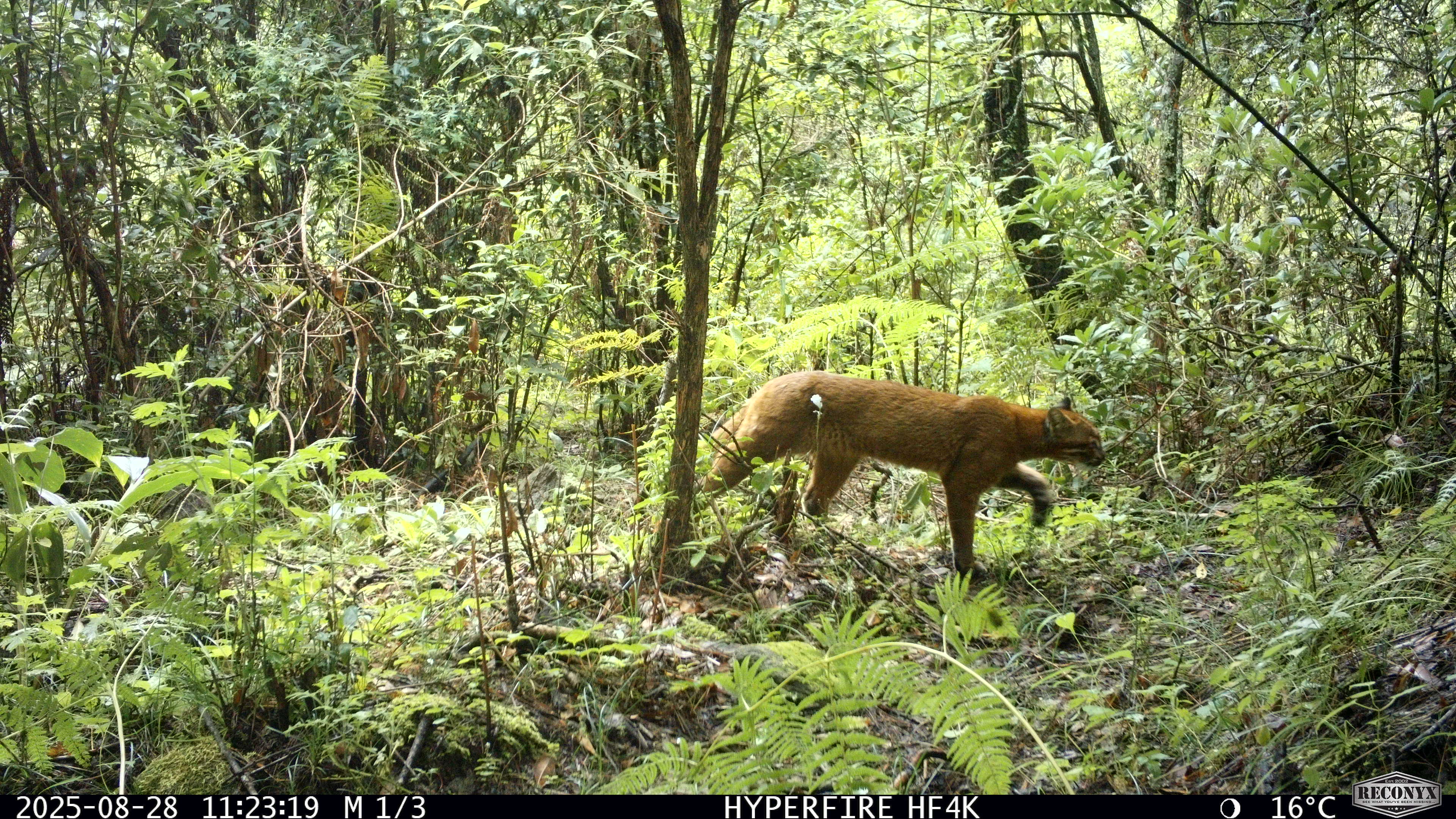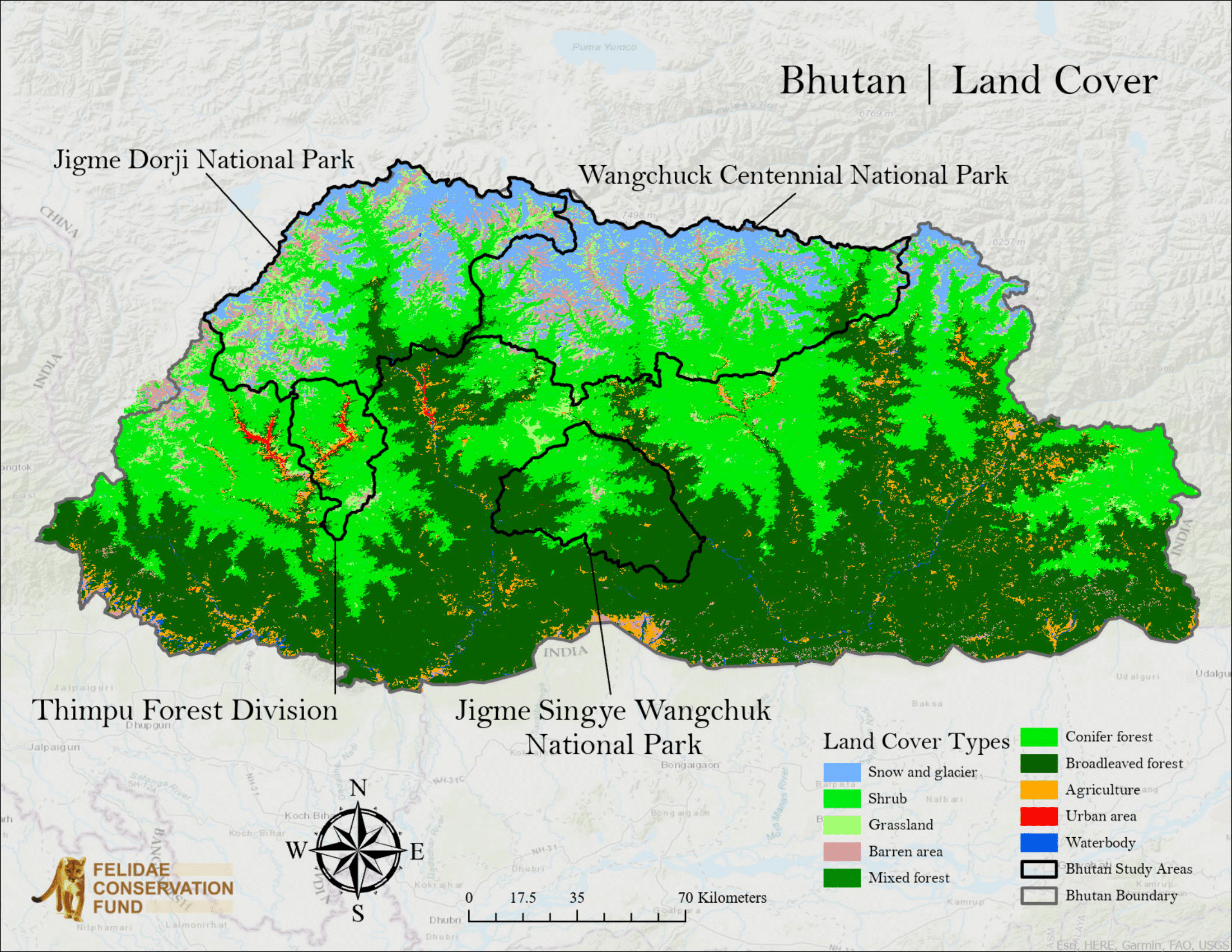New Bhutan Initiative Links Human, Animal, and Ecosystem Health to Protect Wild Cats
First nationwide effort in Bhutan to safeguard nine wild cat species—key ecosystem indicators—through One Health and K9 conservation.
This project represents a landmark step for Bhutan, where protecting our extraordinary wild cats also means safeguarding the health of our people, our domestic animals, and the ecosystems we all share”
MILL VALLEY, CA, UNITED STATES, October 2, 2025 /EINPresswire.com/ -- The Felidae Conservation Fund and Zywie Partners, in partnership with the Department of Forests and Park Services, Royal Government of Bhutan and the Bhutan Ecological Society, have launched the Bhutan Wild Cat Health Project—a pioneering 36-month study examining how domestic dogs and human activity affect wild cat species across Bhutan’s protected areas.— Dr. Lungten Dorji
Using a One Health approach—which links the health of people, animals, and ecosystems—the project is the most comprehensive and longest-running wild felid study ever conducted in Bhutan. A cornerstone of the initiative is the establishment of the world’s first government-led K9 conservation team, transforming formerly free-roaming village dogs into trained detection dogs that can locate scat from elusive wild cat species.
Bhutan is home to nine wild felid species—including the iconic tiger, snow leopard, and clouded leopard. The country’s diverse landscapes and expansive network of protected areas and wildlife corridors provide a rare sanctuary for these species. Yet, outside Bhutan, nearly half of the world’s wild cats face extinction due to habitat loss, disease, and human-wildlife conflict.
The project will monitor wild felids across Jigme Dorji National Park, Jigme Singye Wangchuck National Park, Wangchuck Centennial National Park and Thimphu Divisional Forest areas, using an extensive camera trap array and fecal surveys conducted with conservation dogs. By analyzing fecal samples for viruses, parasites, stress hormones, and diseases commonly carried by domestic dogs, researchers will pinpoint areas of greatest risk for disease spillover and conflict.
The study addresses a growing challenge: the rise of free-roaming domestic dogs in wild cat habitats. While dogs are integral to Bhutan’s agrarian lifestyle—herding livestock, guarding crops, and living alongside rural communities—their increasing numbers, combined with expanding nature-based tourism, heighten the risk of disease transmission and human-wildlife conflict.
Findings will help guide strategic dog vaccination campaigns under Bhutan’s national dog population management strategy and contribute to global research on zoonotic spillover between domestic animals and wildlife. The project will also work with local partners to develop outreach programs, engaging communities, religious leaders, and government stakeholders to promote coexistence with both wildlife and feral dogs.
This initiative marks the most ambitious wild cat study ever conducted in Bhutan—and a crucial step toward safeguarding the country’s unique felid populations while protecting public health and strengthening community stewardship.
"This project represents a landmark step for Bhutan, where protecting our extraordinary wild cats also means safeguarding the health of our people, our domestic animals, and the ecosystems we all share," said Dr. Lungten Dorji of the Nature Conservation Division.
"Bhutan is one of the few places on Earth where nine wild cat species still coexist. By combining global expertise with Bhutanese leadership and a One Health approach, we’re not only safeguarding these elusive felids, but also protecting the health of people, livestock, and ecosystems. This project sets a model for conservation worldwide.” – Zara McDonald, Biologist & CEO, Felidae Conservation Fund
About Felidae Conservation Fund
Established in 2006, Felidae Conservation Fund is a San Francisco Bay Area-based nonprofit dedicated to protecting wild felids in their natural habitats globally. We advance this mission through a One Health approach, integrating rigorous scientific research with landscape-level conservation that benefits wildlife, ecosystems, public health, and local communities. Felidae works with a diverse group of project partners to advance conservation in CA and globally, safeguarding native felids as keystone and indicator species of ecosystem health.
Contact: Zara McDonald or Alys Granados, info@felidaefund.org
Contact in Bhutan: Sonam Wangdi or Dr. Lungten Dorji, Nature Conservation Division, Department of Forests and Park Services sonamwangdi@moenr.gov.bt/ lungtendorji@moenr.gov.bt
Dr. Norbu Wangdi, norbuwangdi@bes.org.bt, Bhutan Ecological Society
Alys Granados
Felidae Conservation Fund
+1 415-877-4050
email us here
Visit us on social media:
LinkedIn
Bluesky
Instagram
Facebook
YouTube
TikTok
X
Other
Bhutan Wild Cat Health Project
Legal Disclaimer:
EIN Presswire provides this news content "as is" without warranty of any kind. We do not accept any responsibility or liability for the accuracy, content, images, videos, licenses, completeness, legality, or reliability of the information contained in this article. If you have any complaints or copyright issues related to this article, kindly contact the author above.



